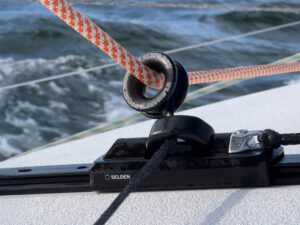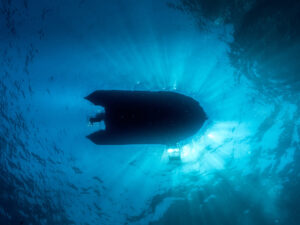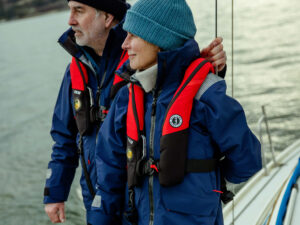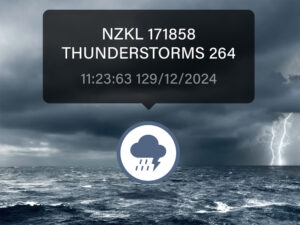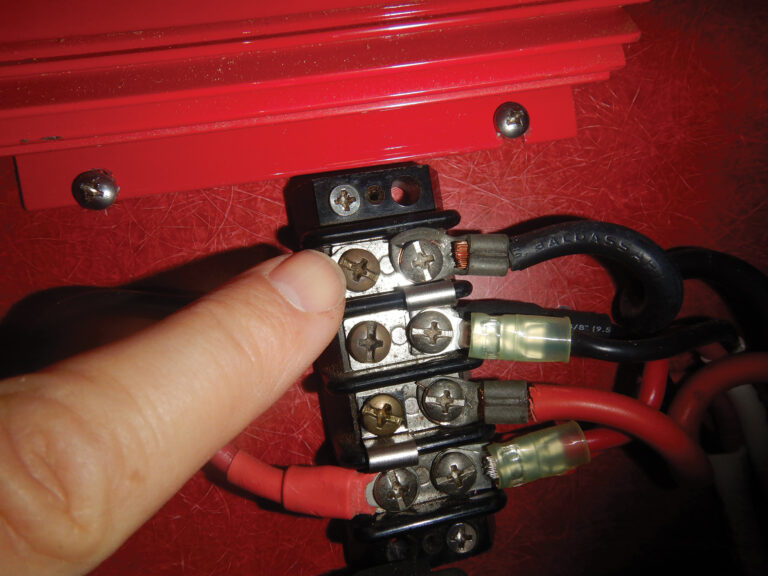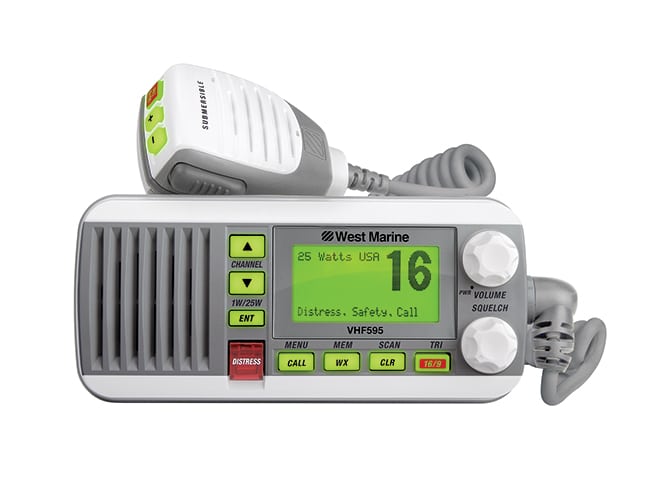
A feature-packed DSC Class D radio with Weather Alert and you can only get it from West Marine!
Our VHF595 fixed-mount submersible VHF Radio is a real workhorse! You’ll find all the basic features (and quite a few advanced ones as well), a microphone with channel buttons and a submersible design that removes any worry about operation when you’re subjected to wind-driven spray and splashes. The large, backlit, full dot-matrix LCD display provides easy viewing of all the important information you’ll need to make and receive calls. All this at a price that makes it a terrific value!
Submersible Design – Built to withstand the toughest of environments, the VHF595 meets the highest submersible standards of IPX8, which means the radio can be submerged in 1.5 meters of water for 30 minutes without damage.
Digital Selective Calling Features – Digital selective calling (DSC) is a standard that allows you to call other stations using their unique identification code (the Maritime Mobile Service Identity, or MMSI, number), just like you would call a phone number. To call another station, just enter that station’s MMSI number and choose the voice channel you want to talk on. The radio uses Channel 70 to transmit your MMSI number to the other station, along with the voice channel you requested. If the other station accepts your call, both radios automatically switch to the requested voice channel so you can talk to the other station.
Advanced DSC Features – The following DSC features are supported: Individual Call, Group Call, All Ships Call, Position Request, Position Send, Test Call, Name and MMSI Directory, Standby Mode and Received Call Log.
Automated Distress Calls – DSC provides a system for automated distress calls. At the touch of a button, the radio can transmit your MMSI number, the nature of your distress and your current position based on data from your GPS receiver. The radio repeats the distress call every few minutes until it receives an acknowledgement.
Weather Alert Watch – If you activate Weather Alert Watch while operating in normal mode, the radio checks the most recently used National Oceanic and Atmospheric Administration (NOAA) weather channel every seven seconds. If it detects a weather alert for your area, it will change the channel to the last-used weather channel. The radio will not check the weather channel while you are actively transmitting; it waits until your transmission is finished and then checks the weather channel. The weather alert watch sounds a warning tone when a hazard alert is issued for your area.
Triple Watch Mode – Checks the Coast Guard distress/hailing channels 16 and 9 in the background every two seconds. You would use this mode when you want to monitor a channel yet maintain a watch on channels 16 and 9.
Dual Watch Mode – Checks the Coast Guard distress/hailing channel 16 in the background every two seconds. You would use this mode when you want to monitor a channel yet maintain a watch on channel 16.
Note: You are required to monitor Channel 16 whenever your boat is underway, so you should have either Triple Watch or Dual Watch on at all times.
Memory Scan Mode – You can save channels into memory and then use scan mode to monitor those channels. When the radio detects a signal on a channel, it pauses on that channel as long as the signal is received. When the transmission stops, the radio will continue scanning.
Transmitter Power Level – In most situations, the 1-watt transmission power is all you need. If you find yourself far away from other stations and have trouble getting a response, you may need to boost the transmission power from 1 watt to 25 watts. The power level button lets you change the transmission power level back and forth as needed.
Battery Level – The VHF595 will display a warning and sound an alert tone if the battery voltage goes too high or too low.
Microphone – You will find channel-select up/down buttons and a channel 16/9 Triple/Dual Watch button conveniently located on the microphone, which features a non-slip rubber grip.
Connecting Your Radio – To operate correctly, your radio requires two electrical connections. You must provide it with power from the boat’s electrical system and connect a VHF-FM marine antenna (sold separately) to the antenna connector.
Accessory Connections – Using the accessory cable pigtail on the back of the radio you can connect the VHF595 to a GPS receiver, a GPS chartplotter and an external speaker (all sold separately).”
Features
Class D DSC
Submersible
Weather Alert
Specifications
Controls: Volume, squelch, eight keys
Channel Selection: Up/down arrow keys
Display Type: LCD (full dot matrix)
Dimensions: 7″”W X 3″”H X 6″”D
Weight: 2.2 pounds
Supply Voltage: Nominal 13.8V DC, negative ground (10.5 VDC to 16.0 VDC)
Antenna Impedance: 50 Ω nominal
Microphone: Rugged 2 kΩ condenser mic element with coiled cord
Microphone Controls: Channel up/down and 16/9 keys
Speaker: 1.77″”, 8 Ω
Operating Temperature Range: –4°F to +122°F (–20°C to + 50°C)
Shock and Vibration: Meets or exceeds EIA standards, RS152B and RS204C
Scanning Modes: Programmable Triple- and Dual-Watch
Weather Alert: S.A.M.E. Emergency/Weather Alert
Transmitter Power Output: 1 watt or 25 watt (user selectable)
Power Requirement: 25 watts output: 6A@13.8V DC
Receiver Performance: Sensitivity: 0.25µV; Rejection: 70dB
Audio Distortion: Less than 8% with 3 kHz deviation with 1000 Hz modulating frequency
Frequency Range: 156 to 163 MHz
NMEA Interface: NMEA 0183
Waterproof Rating: IPX8
AIS Channels: Not supported
Warranty: Three-year waterproof; 49.99 flat rate
Included in the box
VHF595 Fixed-Mount VHF Radio
Mounting bracket and knobs
Mounting hardware
DC power cable
Owner’s manual
Microphone with coiled cord
Microphone hanger with mounting hardware
More Information
Website: West Marine
See the complete 2018 Marine Electronics Guide

